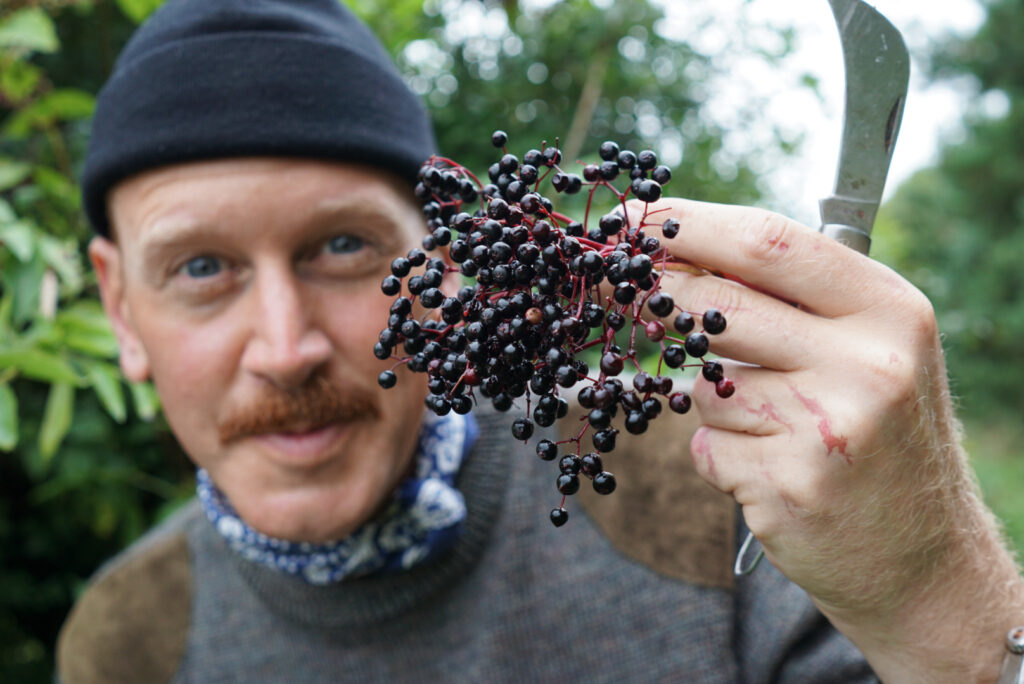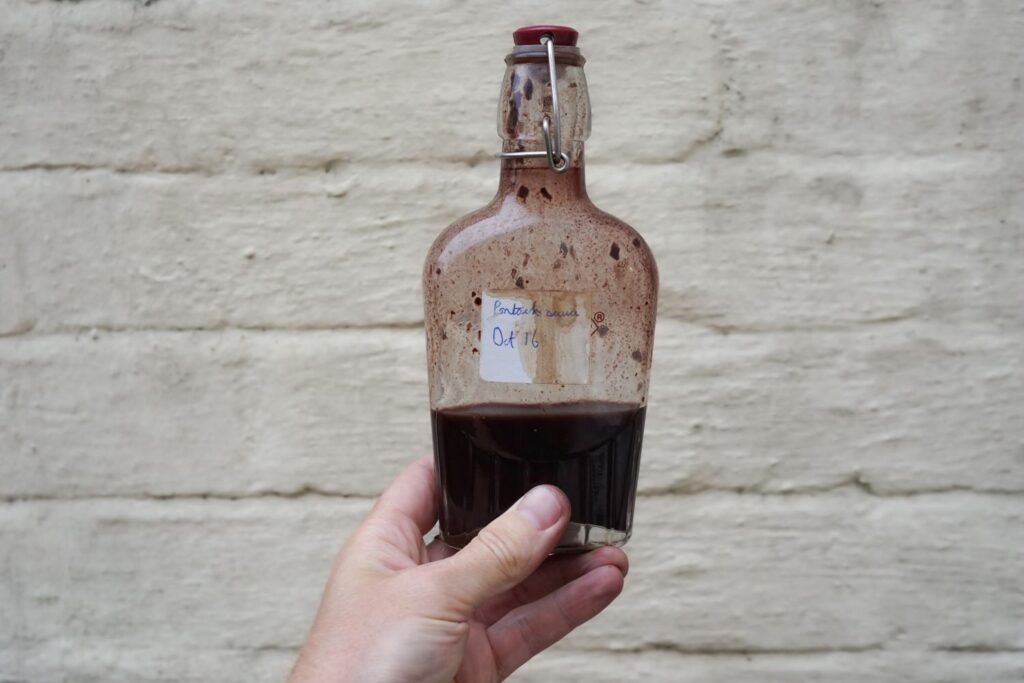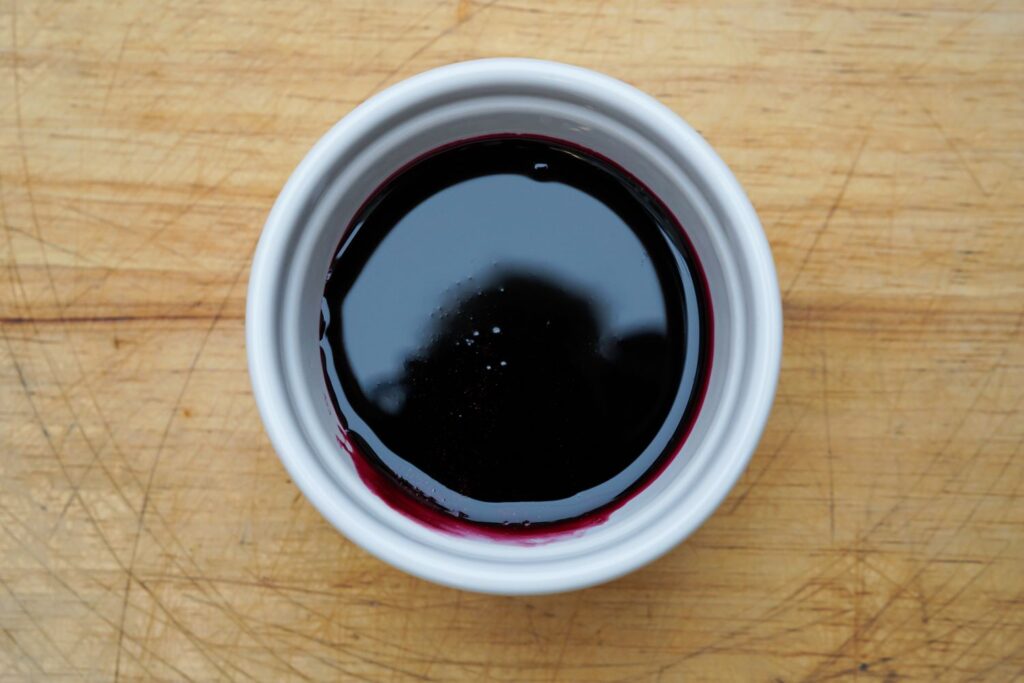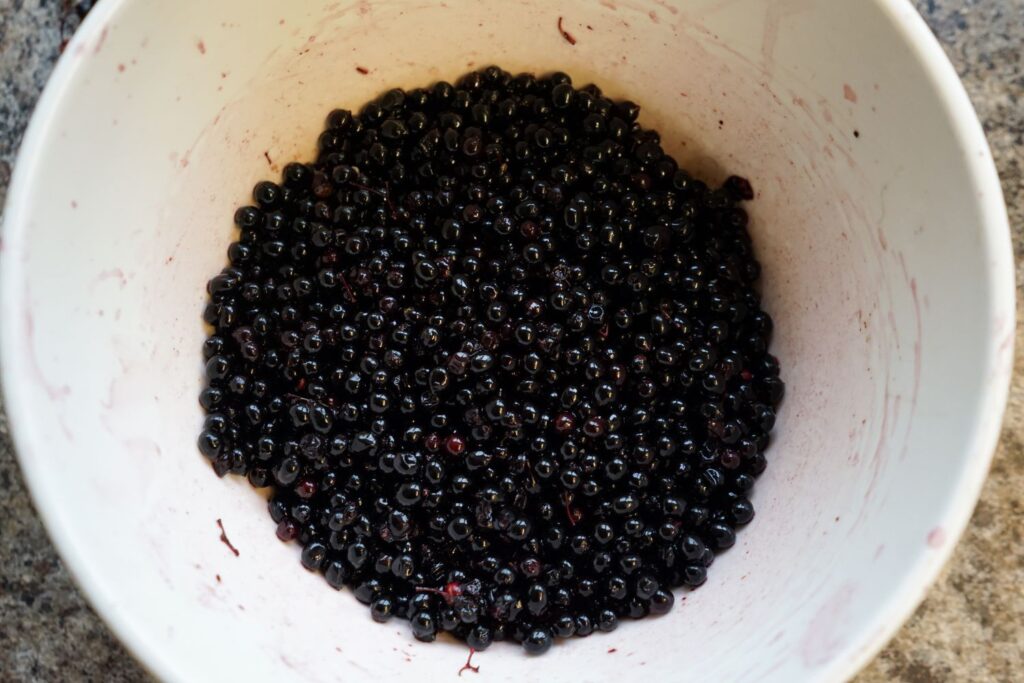Autumn foraging season is upon us, and there are some good-sized elders along the old green lane where I often walk my dog of an evening.

I’ve always had a soft spot for elderberries. In my first teenage days of experimenting with home brew and home-infused spirits, I found a recipe (now long lost, alas) for a sort of hedgerow Campari that relied quite heavily on elderberries for its bitterness. Since then I’ve made them into a variety of boozy infusions, stewed them up into jam, and cooked them down into sandwich pickle with onions, carrots and vinegar.
My stepfather used to make elderberry wine, and when we were helping him move out of his Norfolk cottage some years back, a forgotten bottle was discovered at the back of a cupboard somewhere. Past its best, so he said, but rather a nice way to celebrate a move all the same.
For all that, my favourite thing to do with elderberries is to make them into pontack sauce, as outlined in Richard Mabey’s 1970s classic, Food for Free. If you haven’t come across it before, it’s a sort of fruitier version of Worcestershire sauce – good with rare red meats, and sloshed into stews, gravies and vinaigrette. It lasts forever, and indeed it’s supposed to be at its best after about seven years.

Handily, I made a job-lot in 2016, and I still have half a bottle left, so I can confirm that the seven-year-old variety really is pretty good. I’m especially fond of it with greasy roast lamb, or as Richard Mabey suggests, a nice bit of liver. Supplies are running a bit low, however, so this year’s elderberry harvest will be a chance to replenish my stock. I’ve had a pan full of berries and cider vinegar sat mulling slowly on the storage heater for about 24 hours, and it’s almost worth going out just so I can walk back into the cottage and get a hit of the smell. There was even a little bit left over for jam.


